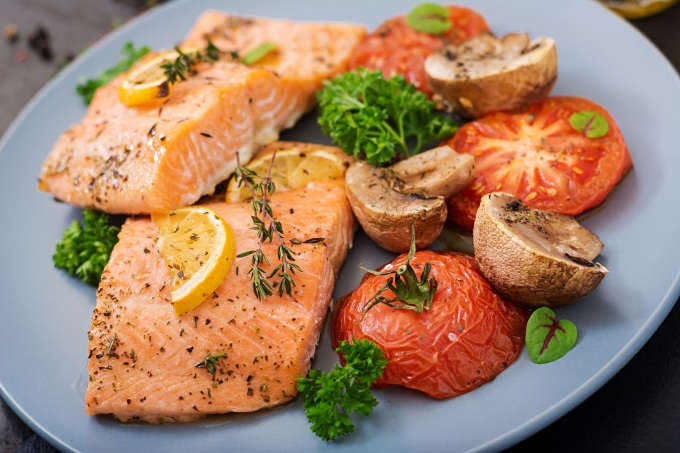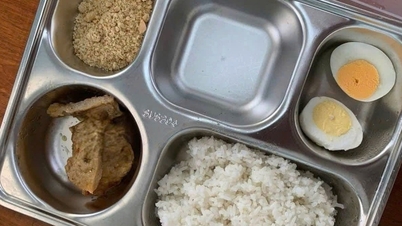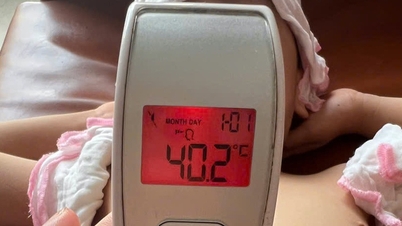Beef is rich in B vitamins, fatty fish rich in omega-3 fatty acids reduce anxiety and improve mood; while coffee, tea, and sweets cause stress.
Some foods help us calm down, others act as stimulants that lead to stress. People with anxiety should eat or cut down on the following foods for health benefits.
Should eat
Foods rich in tryptophan
Tryptophan is a precursor to serotonin, a neurotransmitter that helps reduce stress. This amino acid helps the brain produce feel-good chemicals. Tryptophan is found in chicken, bananas, milk, oats, cheese, soybeans, nuts, peanut butter, and sesame seeds.
Foods rich in vitamin B
Deficiencies in B vitamins such as folic acid (B9) and B12 can lead to depression in some people. Foods rich in B vitamins that reduce anxiety include beef, pork, chicken, green vegetables, beans and nuts, citrus fruits, and eggs. People who do not get enough vitamin B12 or B9 from their diet may need to take supplements as directed by their doctor.
Foods rich in omega-3
Omega-3 fatty acids found in fatty fish such as salmon, tuna, herring, mackerel, anchovies, and sardines can improve mood. A 2023 study by the Institute of Higher Education and Research (JSS), India, of 165 patients with depression and anxiety, found that those who took omega-3 fatty acids along with medication had less severe symptoms than those who took medication alone.

Salmon is rich in mood-boosting omega-3 fatty acids. Photo: Freepik
Protein-rich foods
Protein stimulates the production of brain chemicals norepinephrine and dopamine. High levels of these neurotransmitters improve alertness, mental energy, and reaction time.
Good sources of protein include yogurt, fish, meat, cheese, eggs, nuts, and beans. Combining complex carbs and protein evenly throughout meals has been shown to reduce anxiety.
Complex carbohydrates
Carbohydrates (carbs) increase serotonin production in the brain. Consuming complex carbs is good for the mind, because they take longer for the body to break down and release sugar slowly into the blood. Whereas refined carbs provide an initial burst of energy but then spike insulin levels, causing blood sugar to drop rapidly, causing fatigue and lethargy.
People who are anxious and tired should choose complex carbs such as whole grain bread and brown rice instead of refined carbs such as white bread, white rice, candy or other sugary foods.
Should be avoided
Processed foods
When you are in a bad mood or stressed, you should not consume processed foods such as sausages, cold cuts... because they can cause anxiety after eating.
A 2023 study by Massachusetts General Hospital and Harvard Medical School (USA), on more than 31,000 people, showed that a diet containing processed foods and high fat increased the risk of depression. Over a 5-year follow-up, researchers found that people who consumed 9 or more servings of processed foods per day had a 49% higher risk of depression than people who consumed less than 4 servings per day.
Sweets
Sweets make the body feel better when eaten, but that feeling is only temporary. People who are stressed should not consume them because sugar is absorbed quickly into the blood, easily increasing blood sugar. That increase gradually decreases when the body increases insulin production to remove sugar from the blood. The result is the body is more tired and depressed.
Caffeinated beverages
Caffeine makes you more alert, but too much caffeine can lead to stress and anxiety. This is because coffee can suppress serotonin levels in the brain. Suppressed serotonin levels can lead to irritability and depression.
Ale
Alcohol can cause stress and depression. Like caffeine, alcohol is a diuretic and can lead to dehydration when consumed in large amounts. When you are in a bad mood, you should avoid alcohol. If you drink, drink in moderation. For example, a glass of wine (180 ml) in the evening can improve your mood.
Mai Cat (According to Everyday Health )
| Readers ask questions about neurological diseases here for doctors to answer |
Source link



![[Photo] "Exposing letters" in the flood center of Lang Son](https://vphoto.vietnam.vn/thumb/1200x675/vietnam/resource/IMAGE/2025/10/10/1760080117518_ndo_br_z7101324112737-07cd4d1c01801a8ccf4ae0cbaf31c4a3-507-jpg.webp)

![[Photo] Unique Phu Gia horse hat weaving craft](https://vphoto.vietnam.vn/thumb/1200x675/vietnam/resource/IMAGE/2025/10/10/1760084018320_ndo_br_01-jpg.webp)

![[Photo] Ho Chi Minh City is brilliant with flags and flowers on the eve of the 1st Party Congress, term 2025-2030](https://vphoto.vietnam.vn/thumb/1200x675/vietnam/resource/IMAGE/2025/10/10/1760102923219_ndo_br_thiet-ke-chua-co-ten-43-png.webp)






























































































Comment (0)